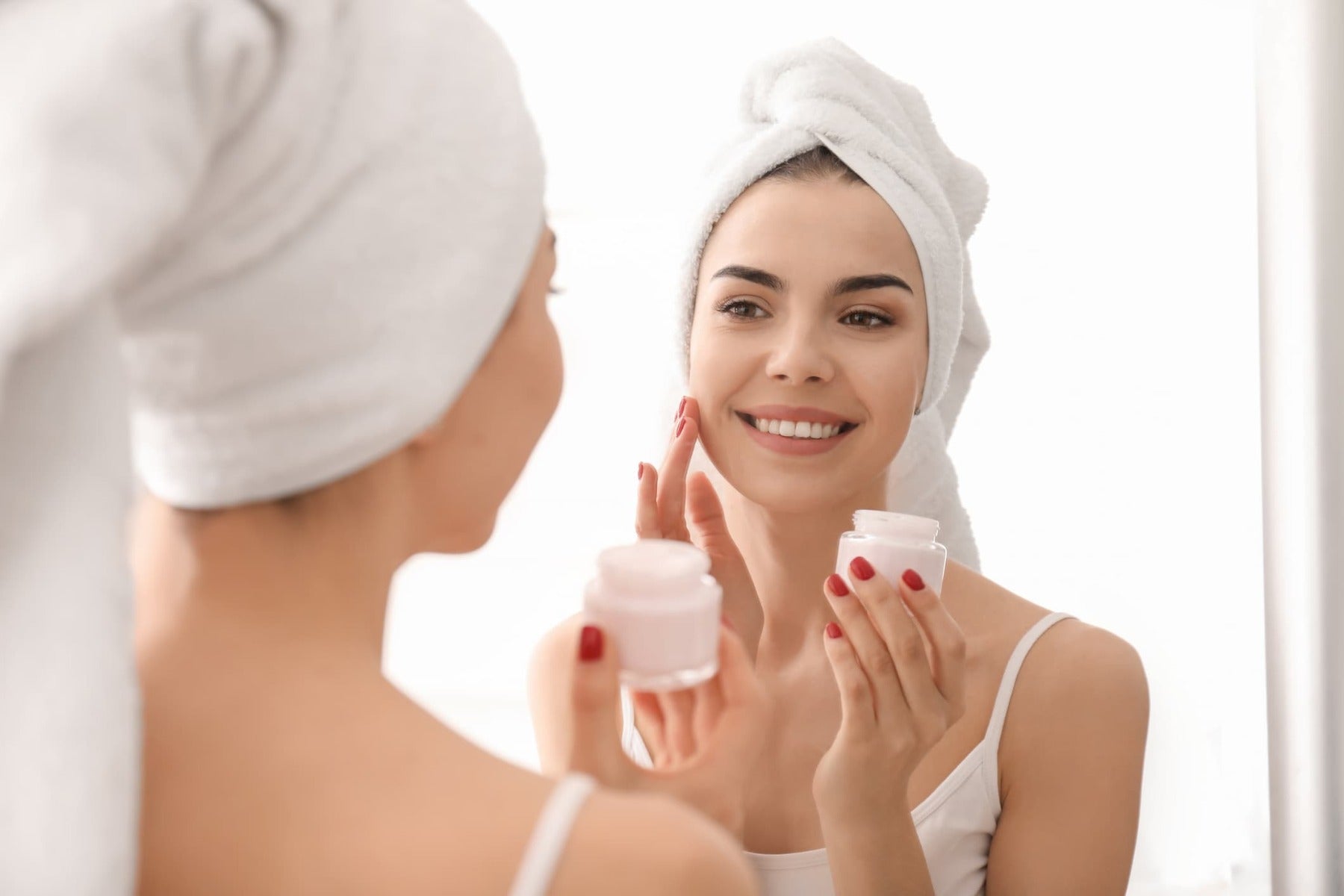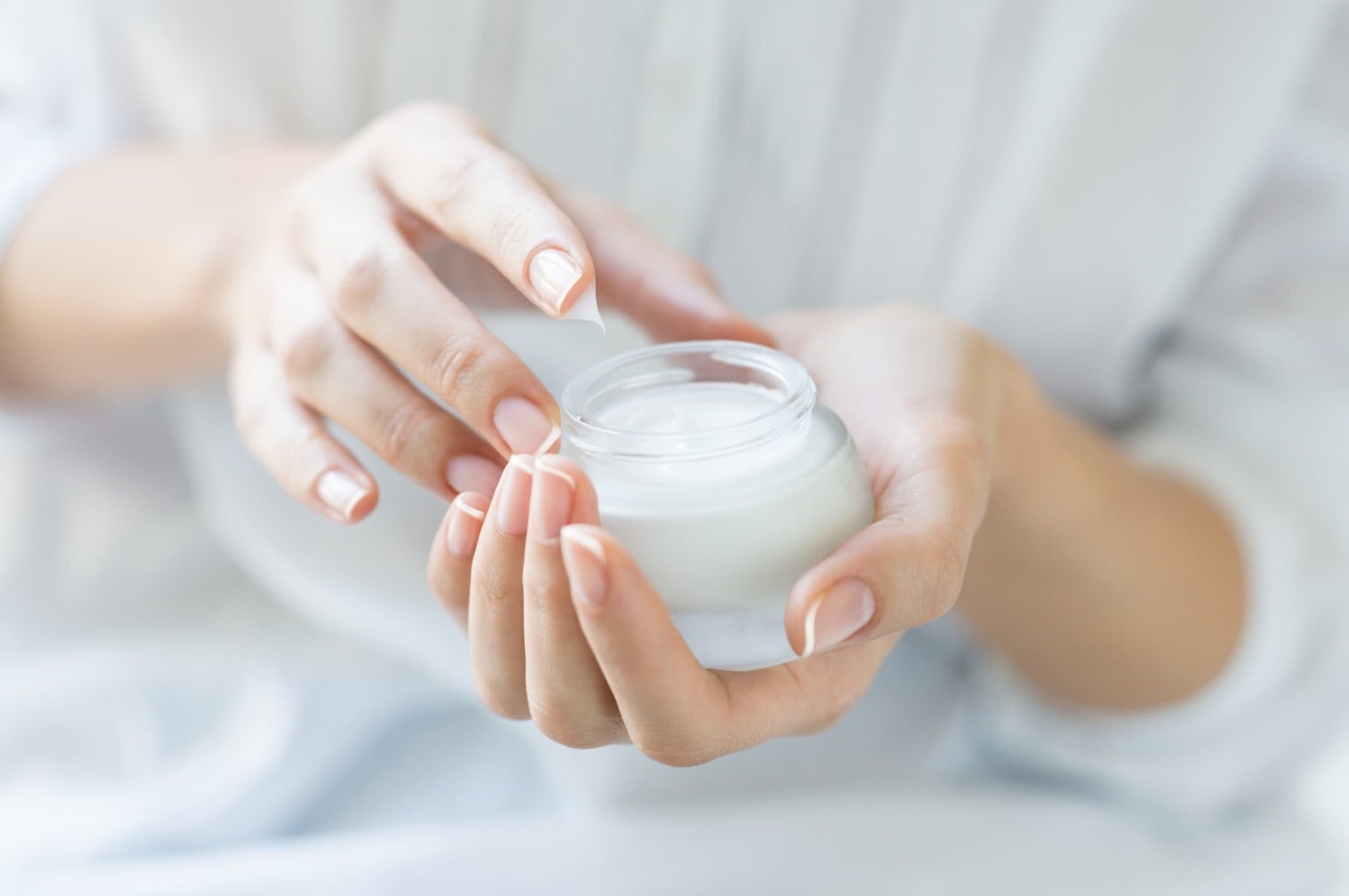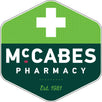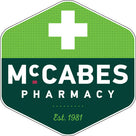Anti-ageing skincare: How to prevent and soften wrinkles
There comes a certain point in all of our lives where we start noticing the signs of ageing, whether it’s a grey hair or the sudden need for glasses. While these can be fixed with a trip to the hairdressers and contact lenses, minimising wrinkles takes a lot more work.
Incorporating certain products into your skincare routine and making lifestyle changes can help slow down the ageing process to ensure you grow old gracefully.
For maximum effectiveness, we recommend anti-ageing products be used from 21 years old. However, in a survey conducted by McCabes Pharmacy, it was revealed that only a quarter of people had started using them between the ages of 18 and 24. A further one in eight had waited until they were at least 45 years old, an age at which wrinkles have often already started to set in.

Once wrinkles have already appeared it’s often too late to eradicate them but there are still methods that can soften the lines.
The importance of sun protection
According to research, 90% of skin ageing is caused by sun exposure. Despite myths that sunscreen is only needed during summer, it should be applied every day, even when the weather is dull. While UVB rays burn skin, UVA rays age skin and are present all year round.
Angela Foster, a nutritionist, health and performance coach, and founder of My DNA Edge, said: “Unprotected exposure to UVA and UVB rays from the sun damages the DNA in skin cells. This can lead to premature ageing as well as skin cancer.
“UV light damages the fibres in the skin called elastin. When elastin breaks down, the skin begins to sag and loses its ability to go back into place after being stretched.”

To protect skin from both types of UV rays and minimise wrinkles, fine lines and coarseness, use a broad-spectrum sunscreen containing zinc oxide with an SPF of at least 30.
Lisa Byrne, Superintendent pharmacist at McCabes Pharmacy, said: “Pollution can damage the skin’s natural protective barrier and prematurely age the skin by accelerating dark spots and wrinkles. As well as SPF, we would recommend an antioxidant serum be included in your skincare regime to combat the effects of toxic fumes.”
What products do you need?
As you age, the skin loses moisture and becomes dry which can make wrinkles more visible. However, a rich moisturiser can restore elasticity and make fine lines less apparent. Ensure you also use a gentle face wash that isn’t drying.
Lisa added: “In the morning, use a day moisturiser with SPF. Then in the evening, after applying cleanser, toner, serum and eye cream, use a rich night moisturiser to rejuvenate the skin while you sleep.”

The skin around your eyes is much thinner than the rest of your skin and needs products dedicated to targeting this area. An eye cream can combat crow’s feet, puffiness and dark circles.
“Exfoliating your skin once or twice a week can help remove debris and dead skin cells which can enhance the effectiveness of your anti-ageing products and leave your skin glowing,” Lisa continued. “However, ensure you aren’t over-exfoliating as this can cause symptoms such as irritation, increased sensitivity and redness.”
What anti-ageing ingredients are most effective?
When choosing from the array of anti-ageing skincare products on the market, look for certain ingredients to ensure it is suitable for your skin type and will provide the best results.
Salicylic acid can stimulate collagen production and minimise fine lines and wrinkles. It also brightens the skin by removing dead skin cells and is anti-inflammatory. It’s not always suitable for people with dry and sensitive skin but a low concentration of the ingredient can sometimes be tolerated.
Retinol, a type of retinoid which are derivatives of vitamin A, is considered a revolutionary ingredient as it has several anti-ageing benefits. It thickens the skin which provides a more youthful appearance by encouraging collagen production. Collagen is responsible for the skin’s structure and elasticity and our body produces less of it as we age, causing wrinkles and thinning skin.
Lisa added: “Retinol can brighten and smooth the skin, reduce any current wrinkles and prevent new lines from forming. It can also fade age spots and even your skin tone.”
It can take three to six months of consistent use to start seeing results from retinol. Until your skin adjusts to the effects of the ingredient it can cause dryness, flaking, irritation and breakouts. But this can be minimised by slowly introducing it to your skincare routine.
“Apply a pea-sized amount once a week until you form a tolerance to the ingredient and then can gradually build up to using it every other night,” Lisa continued. “Begin using a mild formula of retinoid and work up to a stronger version in your 30s and 40s.”
Use retinol at night time as exposure to UV light can make the ingredient less effective and make the skin photosensitive.
If you have a dry complexion, apply moisturiser after using products containing retinol. While retinol can regulate oily skin and treat acne, it may be too harsh for sensitive skin. It can also worsen symptoms of eczema, rosacea and psoriasis.
“Some ingredients shouldn’t be used together, such as retinol and salicylic acid, so check you aren’t applying products which clash,” Lisa said.
Appropriate anti-ageing ingredients for sensitive skin can include:
- jojoba oil
- lactic acid
- malic acid
- niacinamide

Angela added: “Calming agents like calendula and chamomile can be used to heal dry skin. Rose essential oils may also be good for hydrating dry skin and reducing signs of ageing.” Bit confusing going back to Angela from Lisa…
Vitamin C is a natural antioxidant that can prevent premature ageing by stimulating collagen production and elastin. It can also fade age spots and brighten the skin.
Vitamin E, another antioxidant, protects the skin from external elements which can weaken the skin’s elasticity. It can also smooth fine lines and fade dark spots.
“Hyaluronic acid retains over 1,000 times its weight in water within the cells of the skin, making it excellent for hydration and helping to plump the skin,” Angela continued.
Diet, exercise and bad habits
As well as your skincare routine, the food you eat and your exercise habits can also influence your complexion.
Angela continued: “Sugar has a big impact on the skin. It causes glycation resulting in the three signs of ageing - wrinkles, fine lines and discolouration. Any foods that are processed and pro-inflammatory can also have a damaging effect on the skin, as can alcohol and smoking.
“Smoking is a big no-no for the ageing of the skin. It hampers the body's ability to make collagen and also leads to premature wrinkling. Alcohol consumption increases inflammation and can exacerbate problems like rosacea.”

- To help fight signs of ageing skin eat foods rich in:
- protein e.g. fish, chicken and seeds
- vitamin C e.g. grapefruit, berries, tomatoes
- antioxidants e.g. nuts, carrots and kale
“Exercise improves blood flow which can help to deliver oxygen and nutrients to the skin,” Angela added. “This helps to keep the skin healthy, promote collagen production and promote new skin cells which are all good for glowing skin and anti-ageing.”
While there are many side effects of ageing, the skin is often the biggest giveaway of a person’s age. However, you can maintain a youthful radiance for longer and revitalise your skin by following a consistent skincare routine with effective products. Although existing signs of ageing can be reduced with care, it’s better to prevent than treat wrinkles.

